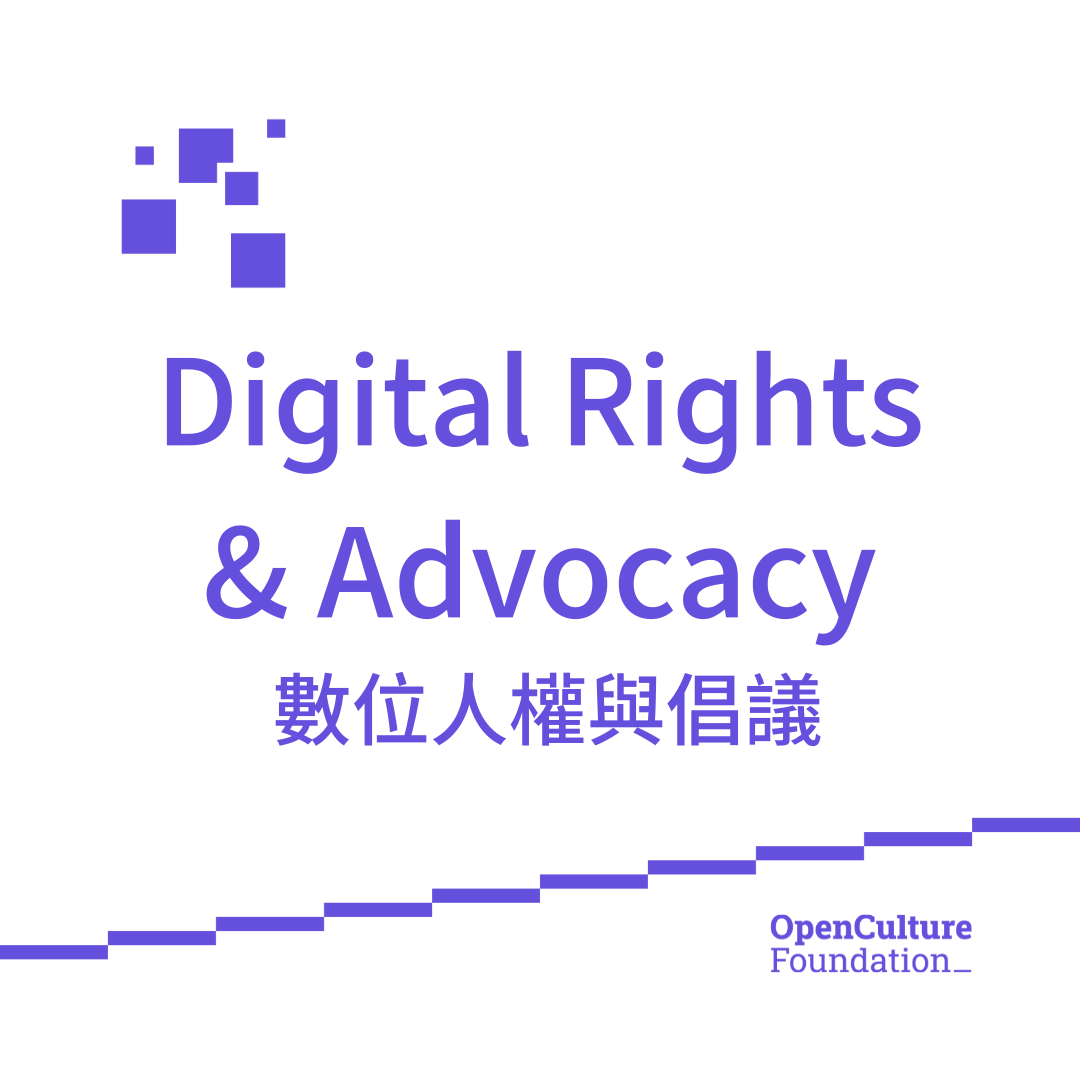
Digital Rights and Advocacy
Based on open technology, promote awareness of digital security and privacy among the Taiwan government, businesses, and civil society, guiding them to take corresponding improvement actions, and jointly create a Taiwan where digital usage is genuinely open on the basis of human rights.
The true openness of technology should be built on human rights considerations.
Whether it's government services, the digital transformation of industry and economy, or mobile applications in our hands, digital technology applications have permeated every aspect of our lives.
As digital and life become highly integrated, this not only means facing more challenges and changes in discussing open technology but, more importantly, considering whether the digital footprint derived from digital applications should be open, how to open it, and how to ensure citizen protection under openness has also become a contemporary issue. Responding to this issue not only requires governments to implement digital privacy protection for citizens in relevant policies and measures but also to incorporate human rights considerations into the next stage of the national digital development blueprint, making human rights considerations the foundation of technology.
At the same time, digital rights issues do not solely fall on the shoulders of governments. Large private enterprises and digital platforms almost monopolize citizens' digital usage trajectories. Therefore, it is extremely important to involve enterprises and multiple stakeholders in digital rights discussions. Thus, governments, enterprises, and citizens can develop genuine openness and digital accessibility that avoids exploitation.
In terms of digital rights and advocacy, the Open Culture Foundation's advocacy focuses on research, promoting multilateral dialogue, professional consultation, and thematic advocacy actions. We focus on examining the risks involved in public power intervening in the use of technology with infrastructure characteristics; for enterprises and multiple stakeholders, we provide consulting advice, human rights risk assessment, and promote multilateral discussions to incorporate human rights considerations into the context of digital use.
Furthermore, in today's world where the public sphere extends from physical to digital spaces, we also ensure that civil society organizations and advocates, through supporting, are not suppressed by corporations, authoritarian governments, or third parties, thus strengthening their channels of expression and continuous advocacy capacity to expand everyone's participation in the digital world.
Three major focus areas:
- Policy, Legislation, and Emerging Technologies:Focusing on examining the risks involved in public power intervening in the use of technology with infrastructure characteristics.
- Corporate Digital Rights:Providing consulting advice, human rights risk assessment, and promoting multilateral discussions to incorporate human rights considerations into the context of digital use.
- Civil Society Digital Security and Resilience:Supporting civil society organizations and advocates to ensure their digital expression spaces.
2024: OCF's Digital Rights Program
- Enhancing Privacy: Action Strategies of Civil Society under the Digital Rights and Environmental Conditions of East Asia - Taiwan, South Korea, and Hong Kong (2024/04)
Enhancing Privacy: Action Strategies of Civil Society under the Digital Rights and Environmental Conditions of East Asia - Taiwan, South Korea, and Hong Kong (2024/04)
Learn More:Empowering Privacy: Civil Society Strategies in East Asia's Digital Landscape
Full Report Download: - Provide consultation, connect with technology talent and resource-related recommendations for civil society organizations and advocates.
Provide consultation,research and source connecting on defending civil society’s digital threats. - Update Ranking Digital Rights in Taiwan 2024-2025:
Continuing from the release of the Taiwan Corporate Digital Rights Rating in 2022-2023, data collection is expected to be conducted in the second half of this year, and the data will be updated in 2025.
Learn about Corporate Digital Rights Rating 2022-2023 - Cross-Border and Multilateral Cooperation:Through research, activities, conference presentations, etc., continue to conduct multilateral dialogues on digital rights. Create more diverse cooperation and advocacy development possibilities.
If you are interested in learning more about the report and our advocacy, please contact Open Culture Foundation via hi@ocf.tw.